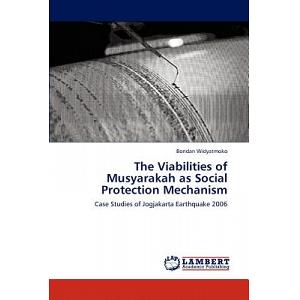The following are acceptable Shariah principles and concepts which may be applied in an Islamic fund management business.
Wakalah
A contract which gives the power to a person to act on his behalf, as long as he is alive, based on agreed terms and conditions.
Ujrah
Financial payment for services used. In today’s economy, it can be in
the form of salary, wage, allowance, commission and the like.
Ji’alah
The contract of reward; a unilateral contract promising a reward for a specific act or accomplishment.
Wadiah yad amanah
Goods or deposits kept with another person (not the owner) for
safekeeping. The depositors are not entitled to any share of the profits
but the depository may provide returns to the depositors as a token of
appreciation.
Wadiah yad dhamanah
Goods or deposits kept with another person (not the owner) for
safekeeping. The depositors become the guarantor and guarantees
repayment of the whole amount or part of it that is outstanding in the
account of depositors, when demanded. The depositors are not entitled to
any share of the profits but the depository may provide returns to the
depositors as a token of appreciation.
Mudharabah
A contract made between two parties to finance a business venture. The parties are a rabb almal or an investor who solely provides the capital and a mudharib or an entrepreneur who solely manages the project. If the venture is profitable, the profit will be distributed based on a pre-agreed ratio. If there is a business loss, it should be borne solely by the capital provider.
Musyarakah
A partnership between two parties or more to finance a business
venture whereby all parties contribute capital either in the form of
cash or in kind. Any profit derived from the venture will be distributed
based on a pre-agreed profit-sharing ratio but a loss will be shared on
the basis of equity
participation.
Murabahah
A contract which refers to the sale and purchase transaction for the
financing of an asset whereby the cost and profit margin (mark-up) are
made known and agreed to by all parties involved. The settlement for the
purchase can be settled either on a deferred lump-sum basis or
instalment basis, and is specified in the agreement.
Istisna`
A purchase order contract of assets whereby a buyer will place an
order to purchase an asset to be delivered in the future. In other
words, a buyer will require a seller or a contractor to deliver or
construct the asset to be completed in the future according to the
specifications given in the sale and purchase contract. Both parties to
the contract will decide on the sale and purchase prices and the
settlement can be delayed or arranged based on the schedule of work
completed.
Hibah
A gift awarded to a person on a voluntary basis.
Hiwalah
A contract which allows a debtor to transfer his debt obligation to a third party.
Hak Tamalluk
An asset in the form of ownership rights as classified by the Shariah which are tradeable.
Tawarruq
The purchase of a commodity on deferred payment basis through a direct sale or murabahah. The commodity is then sold for cash to a party other than the original seller.
sources:
https://www.sc.com.my/guidelines-on-islamic-fund-management/

No comments:
Post a Comment